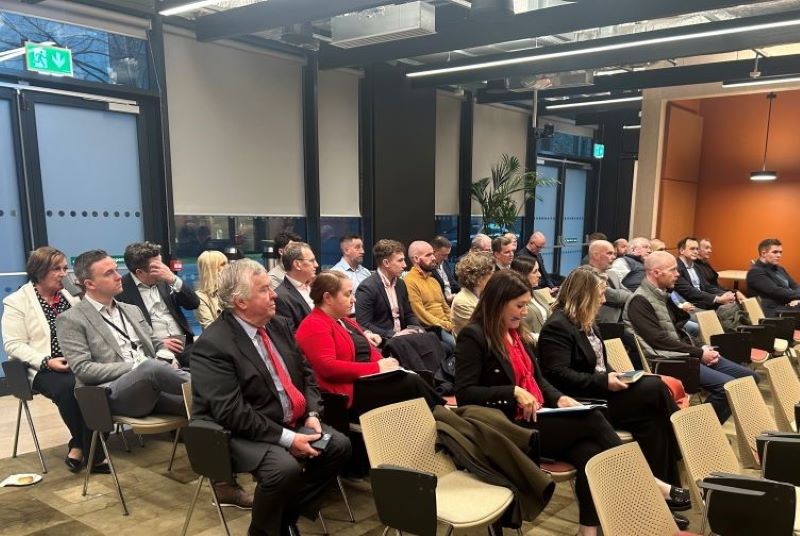The economic opportunities and challenges facing County Donegal over the next five years were cross-examined recently by industry leaders, business owners, and economic analysts at a Donegal Dublin Business Network (DDBN) event in the capital.
The gathering was hosted by Grant Thornton, one of the world’s largest accounting and advisory organisations. ‘Donegal 2030: A DDBN Forum on the Business and Economic Opportunities for the County Over The Next Five Years’ attracted a large and diverse audience keen to explore the strategies required to unlock the county’s potential.
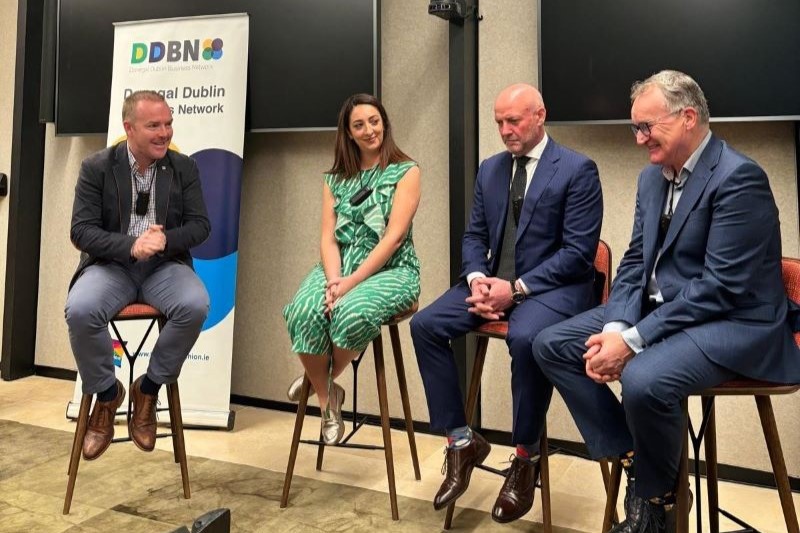
DDBN event host Sean Perry (left) with Aisling Arnold, Donagh Kelly and economist, Jim Power.
Chaired by DDBN committee member and Ballyshannon native, journalist and PR executive Sean Perry, the forum heard from the well-known national analyst Jim Power. The economist emphasised the critical need for a long-term strategy for Donegal, noting that 99% of businesses in Ireland were SMEs. He highlighted the unique position of Donegal, which, despite its remoteness, offered significant opportunities for economic development, particularly through cross-border collaboration. Yet, as Power observed, Donegal continued to grapple with the lowest disposable income in Ireland, sitting 21% below the national average.
“Short-term thinking is holding us back,” Mr Power stressed.
“Donegal needs a clear, actionable roadmap to support its SME sector, drive investment, and create sustainable growth,” he added.
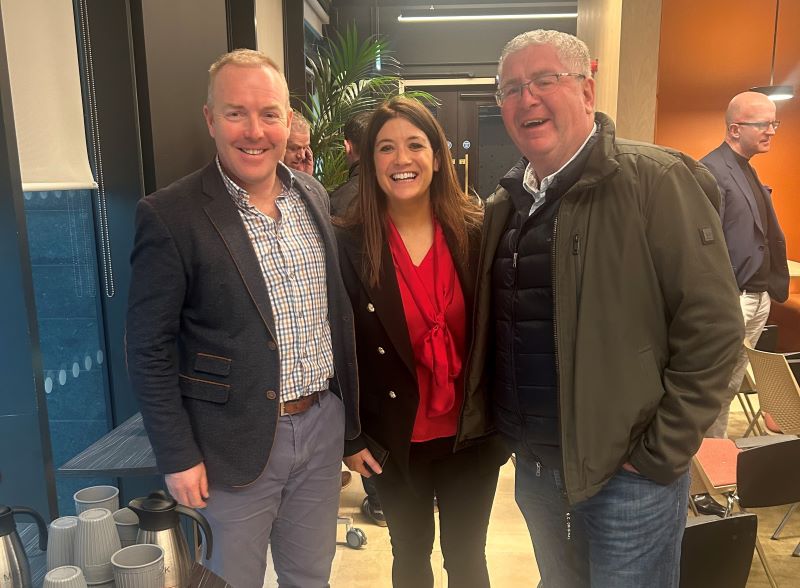
Aisling Arnold, General Manager of Arnold’s Hotel and Chair of the Donegal Branch of the Irish Hotels Federation, spoke passionately about the challenges facing the hospitality sector.
“The government’s decision not to reduce the VAT rate for hospitality has been a major blow. This is a low-margin business, and many establishments are operating on the brink,” Ms Arnold stated.
She also stressed the importance of connecting Donegal’s key tourist attractions, such as Sliabh Liag and Fanad Lighthouse, to create a cohesive tourism offering. Arnold highlighted infrastructural gaps, including the lack of road access for coaches to scenic locations like Horn Head, which limited tourism growth.
Additionally, staffing remained a significant challenge, with visa and accommodation issues forcing hotels like Arnold’s to allocate guest rooms to employees.
“Politicians need to better understand the realities faced by the hospitality industry,” Arnold concluded.
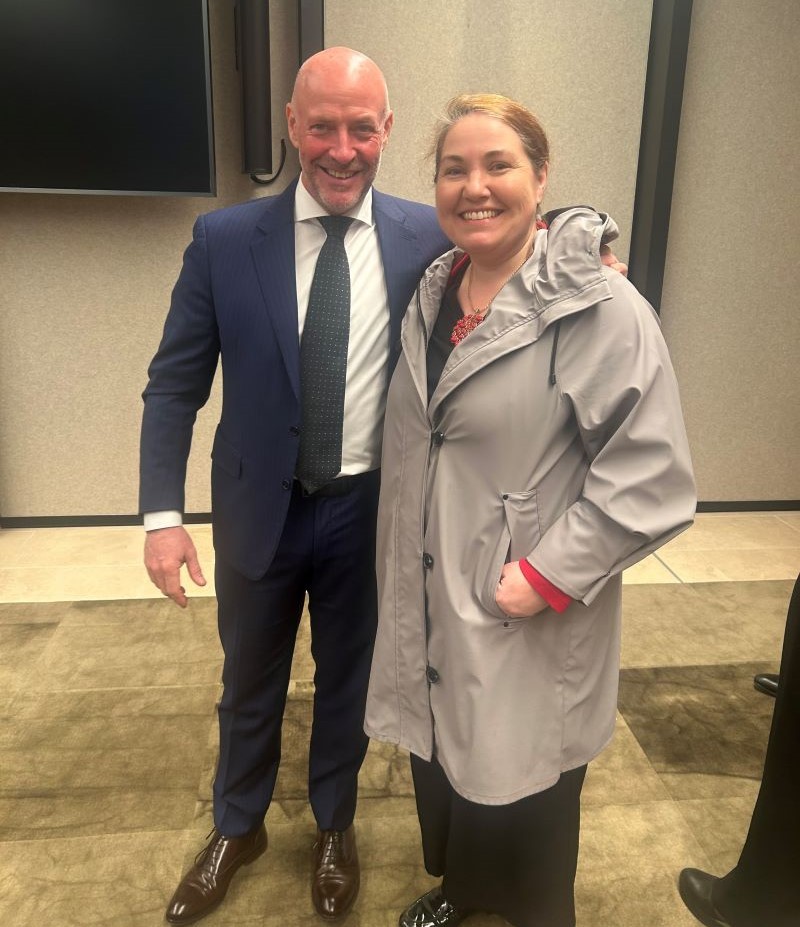
Donagh Kelly (above), CEO of Circet Group, outlined the transformative potential of greenway projects for Donegal. He pointed to the success of similar initiatives in Mayo and Waterford, which had revitalised local economies and communities.
“A Donegal Greenway, connecting Letterkenny to Burtonport, Donegal Town to Ballybofey, and other key routes, could be a game-changer,” he said.
“However, bureaucratic delays, such as lengthy environmental studies, are stalling progress. The will is there – we just need to light a fire under this initiative.”
Kelly also highlighted Letterkenny as a model for economic vibrancy, with Circet’s Letterkenny location boasting the lowest staff turnover and highest productivity in their Operations.
“Young people want to live in vibrant, connected places. We need to replicate this success across Donegal, starting with investment in infrastructure and industrial hubs,” he said.
The panel urged policymakers and business leaders to collaborate on developing this strategy, focusing on SME growth, tourism infrastructure, and leveraging Donegal’s unique position in the all-Ireland economy.
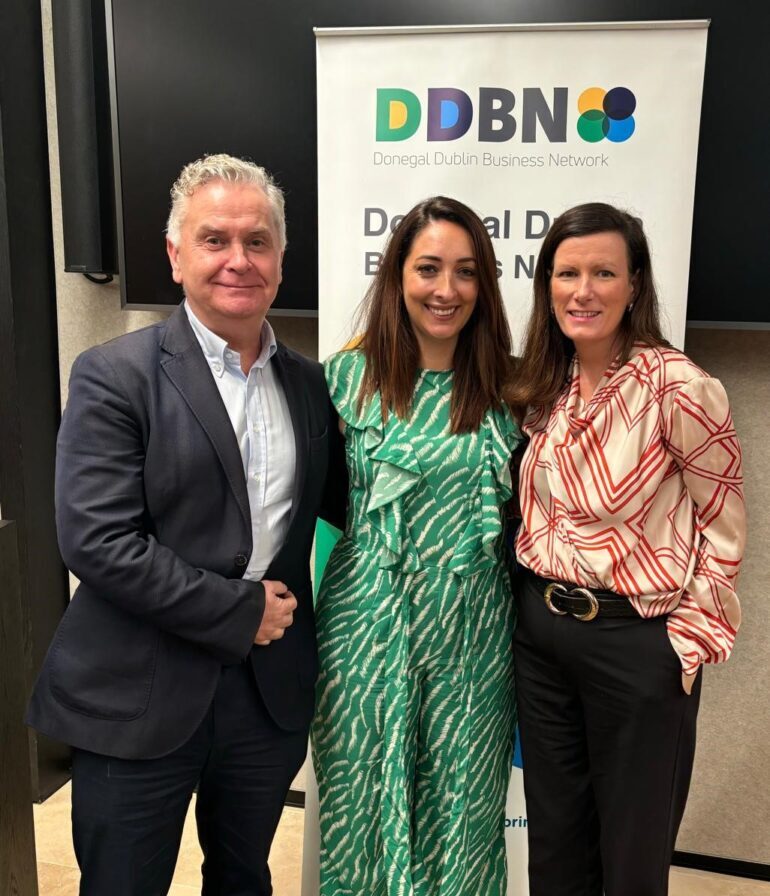
Tags:








